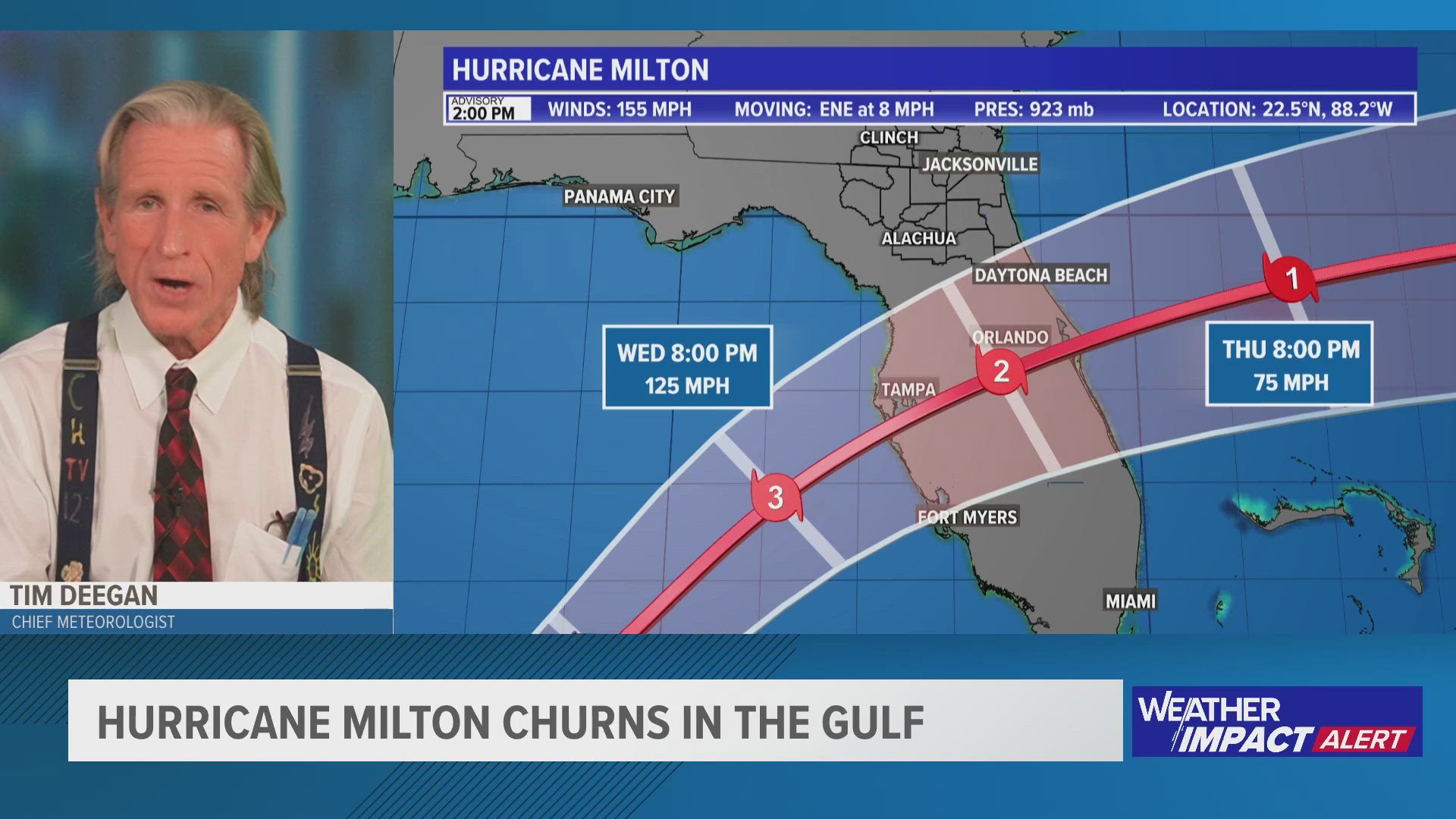DUVAL COUNTY, Fla. — Duval County's Florida Department of Health Office (DOH-Duval) is urging residents to be aware of flooding and its associated health risks after Hurricane Milton progressed to a Category 5 and is predicted to have major impacts on the First Coast starting Wednesday.
DOH-Duval officials said skin contact with flood waters alone does not present a serious health risk, but concerns are warranted when bacteria contaminates waters or dangerous debris becomes involved.
In order to prevent illness or injury from flood waters, the health department wants residents to be aware of the following:
- Basic hygiene is critical. If you are under a boil water notice, use commercially bottled water for mixing baby formula. Wash your hands with soap and either disinfected or boiled and cooled water, especially before preparing or eating food, after toilet use, after handling a soiled diaper, after participating in flood cleanup activities, and after handling objects contaminated with flood water or sewage.
- Avoid eating for drinking anything that has been contaminated with flood waters.
- Avoid contact with flood waters, especially if you have open cuts or sores.
- If you have any open cuts or sores and come in contact with flood waters, wash the area well with soap to prevent infection. If a wound develops redness, swelling, or drainage, seek immediate medical attention.
- Residents who sustain lacerations and/or puncture wounds are encouraged to contact their primary health care provider to make sure they are current on their tetanus vaccine and possibly get a booster.
DOH-Duval wants residents to be aware of Vibrio vulnificus
- Risk Factors: Individuals who have compromised immune systems, liver disease, or open wounds are at higher risk for Vibrio vulnificus.
- Symptoms: Symptoms may include diarrhea, vomiting, abdominal pain, fever, chills, fast or high heart rate, confusion, or disorientation.
- When to Seek Medical Attention: Seek medical attention immediately if you experience symptoms associated with Vibrio vulnificus, especially after exposure to floodwaters.
Those who use a septic system and experience slow functioning plumbing should heed the following:
- Conserve water as much as possible; the less water used the less sewage the septic tank must process. Minimize use of your washing machine.
- Do not have the septic tank pumped. Exceptionally high-water tables might crush a septic tank that was pumped dry. If the basic
DOH-Duval also lists the following warnings about flooded wells:
- Heavy rainfall may have made your well water unsafe to drink. If you are unsure about the impact of flooding on your well water, use bottled water or boil water for drinking, making ice, teeth brushing, and washing any areas of the skin that have been cut or injured.
- If your well is affected by flood waters, there may be disease-causing organisms in your water making it unsafe to drink.
- For additional questions regarding well water testing, contact DOH-Duval Environmental Public Health at 904-253-1280.



